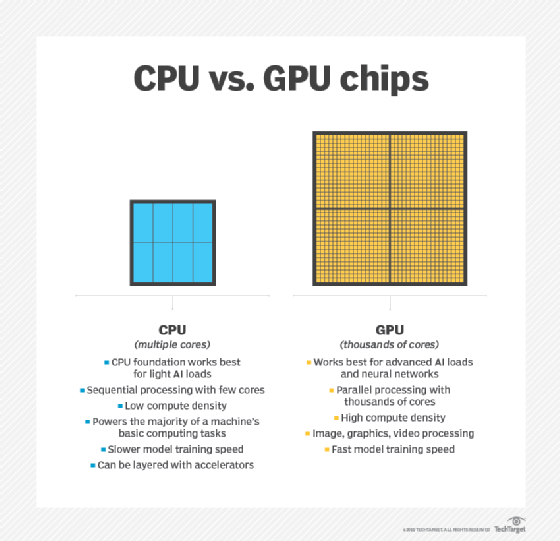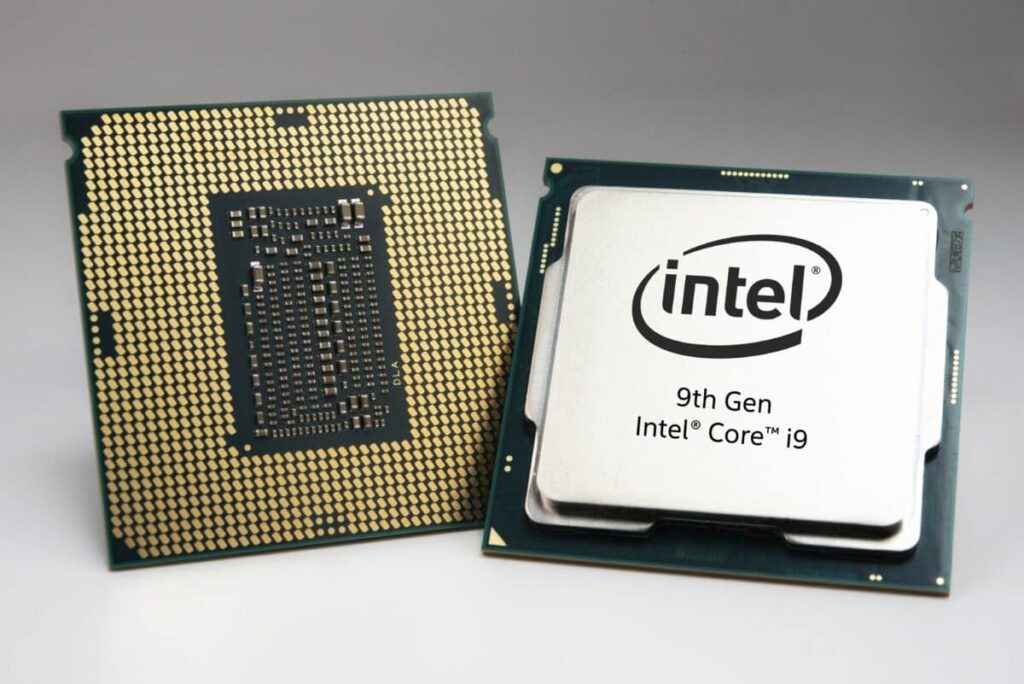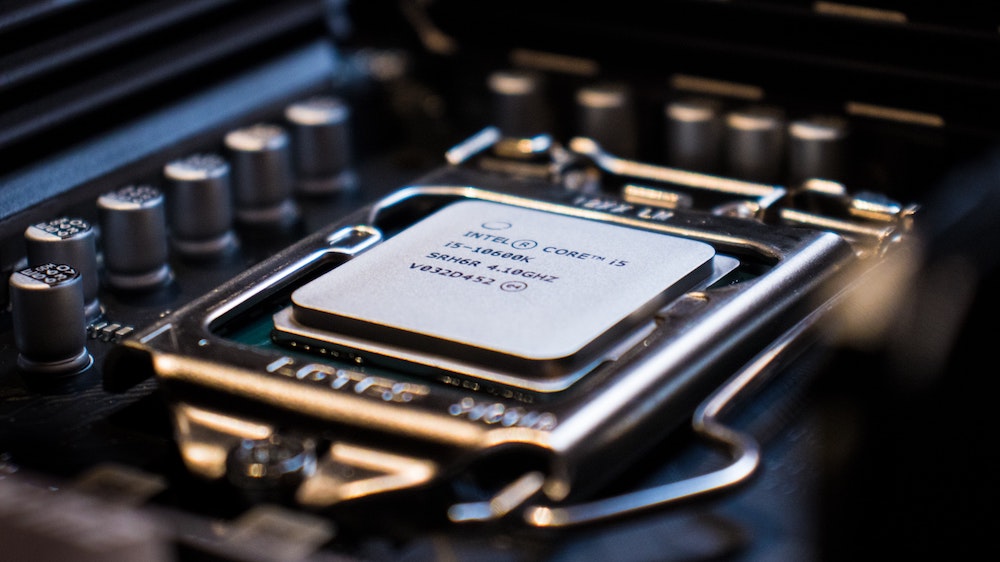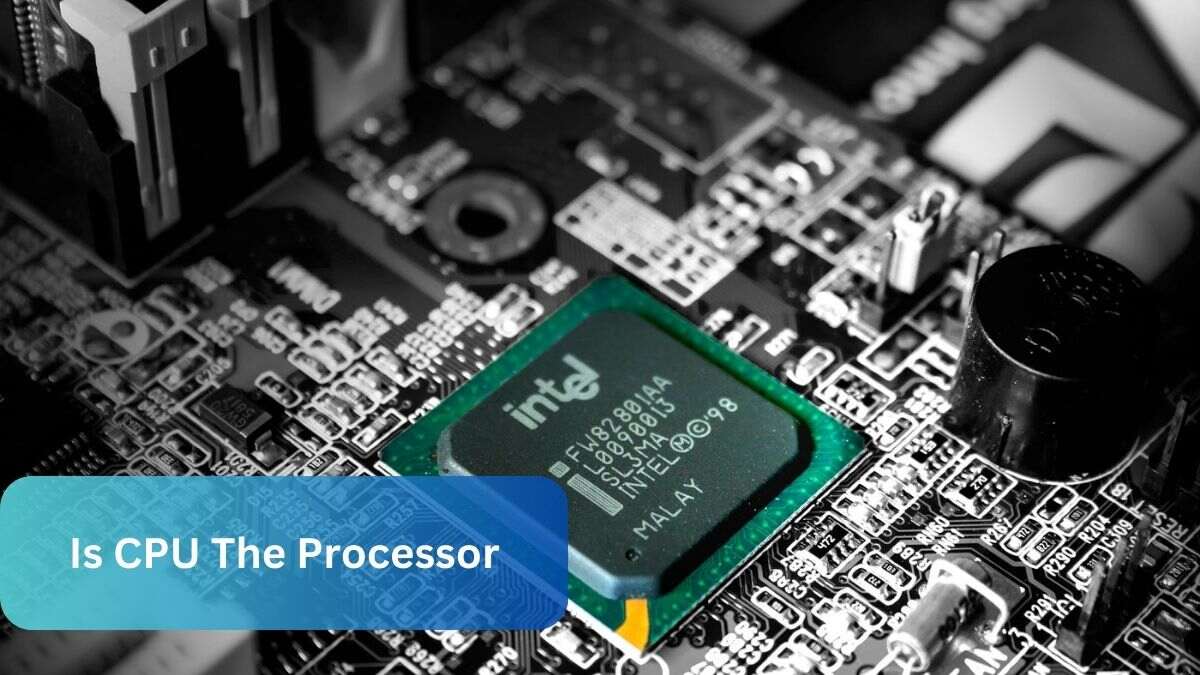The CPU (Central Processing Unit) is indeed a type of processor, but not all processors are CPUs. The CPU is the main processing unit in a computer that handles general tasks, while other processors, like GPUs and DSPs, specialize in specific functions such as graphics or signal processing.
From my experience, I’ve often found that people use “CPU” and “processor” interchangeably, but as I’ve learned, the CPU is a specific type of processor with general-purpose functions, while other processors have specialized roles.
In this article we discuss about “Is CPU The Processor”.
Table of Contents
Introduction to CPU and Processor
What is a CPU?
The Central Processing Unit (CPU) is often described as the brain of your computer. It executes instructions from programs and performs calculations necessary for everything from simple tasks to complex operations.
What is a Processor?
The term “processor” is a broader term that encompasses various types of processing units, including CPUs. In essence, all CPUs are processors, but not all processors are CPUs.
The Role of a CPU
Core Functions

The CPU is responsible for executing instructions, performing arithmetic operations, and making logical decisions. It’s the key component that ensures your computer performs tasks smoothly.
Components of a CPU
A typical CPU consists of multiple cores, each capable of executing instructions independently. It also includes the control unit, arithmetic logic unit, and various registers.
Read Most Important: What Processor Has the Most Cores – Ultimate Guide 2024!
Types of Processors
Central Processing Unit (CPU)
The CPU is the primary processor found in most computers. It handles the bulk of processing tasks and operations.
Graphics Processing Unit (GPU)
The GPU is designed for handling graphics and complex calculations related to visual output. While it’s a processor, its functions are distinct from a CPU’s.
Digital Signal Processor (DSP)
DSPs are specialized processors used for handling real-time signal processing tasks like audio and video compression.
Application-Specific Integrated Circuit (ASIC)
ASICs are custom-designed processors used for specific applications, such as mining cryptocurrencies or processing specific types of data.
Key Differences Between CPU and Processor
Functionality

While CPUs are designed to handle general-purpose computing tasks, processors like GPUs or DSPs are optimized for specific types of processing.
Performance and Speed
CPUs are optimized for single-threaded performance, while other processors might offer higher performance for parallel tasks or specialized operations.
Applications
CPUs are versatile and found in most computing devices, while other processors are used in niche applications based on their specialization.
Read Most Important: What Should CPU Utilization Be – Ultimate Guide 2024!
How CPUs and Processors Work Together
Integration in Modern Computers
Modern computers often feature multiple processors working in harmony. For instance, a computer might have a CPU for general processing tasks and a GPU for graphics.
Performance Enhancement
Combining different types of processors can enhance overall system performance, allowing for more efficient handling of diverse tasks.
Choosing the Right Processor for Your Needs
Assessing Your Requirements
Determine whether you need a processor for general computing, gaming, or specialized tasks. Each type of processor offers unique advantages based on your needs.
Future-Proofing
Consider future requirements and choose processors that offer scalability and performance enhancements.
The Evolution of Processors
Historical Overview
From early CPUs to modern multi-core processors, the evolution of processors reflects advances in technology and computing power.
Future Trends
Emerging technologies like quantum computing and AI-driven processors are shaping the future of computing.
What Are Some Examples of CPUs?
CPUs, or Central Processing Units, are essential components in computers that handle processing tasks and execute instructions. Here are some notable examples of CPUs, each with distinct features and use cases:
Intel Core i7

The Intel Core i7 is a popular choice for high-performance computing in consumer desktops and laptops. Known for its robust processing power, it’s well-suited for tasks like gaming, video editing, and multitasking. The Core i7 typically features multiple cores and threads, enabling it to handle complex applications efficiently.
AMD Ryzen 5
AMD’s Ryzen 5 CPUs are a key competitor in the mid-range market, offering strong performance for both gaming and productivity tasks. With multiple cores and threads, Ryzen 5 processors provide excellent multitasking capabilities and value for money, making them a popular choice among users looking for a balance of performance and cost.
Intel Xeon
The Intel Xeon series is designed for servers and workstations that require high reliability and performance. Xeon CPUs are optimized for tasks like data processing, large-scale simulations, and enterprise applications. They often support features like ECC (Error-Correcting Code) memory and have more cores compared to consumer CPUs.
AMD Threadripper
AMD’s Threadripper CPUs are known for their exceptional multi-core performance, making them ideal for professional workstations and high-end computing tasks. With a large number of cores and threads, Threadripper CPUs excel in scenarios that involve heavy multitasking, content creation, and complex computations.
Apple M1
The Apple M1 chip represents a significant shift in CPU design, as it’s part of Apple’s transition to its own silicon for Macs. The M1 integrates the CPU, GPU, and other components into a single chip, offering impressive performance and energy efficiency. It’s used in various Apple devices, including the MacBook Air, MacBook Pro, and Mac Mini.
Intel Core i9
The Intel Core i9 is a high-end processor designed for enthusiasts and professional users who need top-tier performance. It offers higher clock speeds and more cores compared to the Core i7, making it suitable for demanding applications such as 4K video editing, gaming at high settings, and virtual reality.
Read Most Important: What Is A Core In CPU – A Complete Guide 2024!
AMD Ryzen 7
Positioned above the Ryzen 5, the Ryzen 7 CPUs deliver even better performance with more cores and threads. They are ideal for users who need a powerful processor for gaming, content creation, and professional applications. Ryzen 7 processors are known for their competitive performance and affordability.
These examples illustrate the range of CPUs available, catering to different needs from everyday computing to high-end professional tasks. Each type of CPU offers unique features and benefits, allowing users to select the right processor based on their specific requirements.
Is a CPU the same as a processor?
The CPU (Central Processing Unit) is a type of processor, but not all processors are CPUs. The CPU is the primary processing unit in a computer, handling general tasks. Other processors, like GPUs, have specific functions beyond general computing.
What is the difference between CPU and processor core?
The CPU is the main processing unit of a computer, while a processor core is an individual processing unit within a CPU. A CPU can have multiple cores, allowing it to handle multiple tasks simultaneously. Each core processes instructions independently, enhancing overall performance.
Is CPU a processor True or false?
True. The CPU is a type of processor. It’s the central component in a computer responsible for executing instructions and performing calculations. Other processors, such as GPUs, serve different specialized functions.
Is Intel processor a CPU?
Yes, an Intel processor is a CPU. Intel manufactures various CPUs that handle general computing tasks in computers. Their processors are used in many devices for running applications and performing calculations.
Is a CPU also called a processor?

Yes, a CPU is often called a processor. While “processor” is a broader term that includes different types of processing units, the CPU is the main processor in a computer responsible for general tasks.
Is a CPU just a chip?
Yes, a CPU is essentially a chip. It’s a small, integrated circuit that acts as the brain of a computer, executing instructions and managing operations. Despite its small size, it performs crucial tasks that drive the computer’s functionality.
Read Most Important: What Is the Best Computer Processor for a Laptop – Complete Guide In 2024!
FAQs
1. Is the CPU the only processor in a computer?
No, while the CPU is a primary processor, other processors like GPUs and DSPs are also present in computers, each serving different purposes.
2. Can a computer function without a CPU?
No, the CPU is essential for a computer’s operation, as it handles the core processing tasks required for running software and performing calculations.
3. How do GPUs differ from CPUs?
GPUs are optimized for handling complex graphics and parallel processing tasks, whereas CPUs are designed for general-purpose computing and single-threaded tasks.
4. What is a multi-core CPU?
A multi-core CPU has multiple processing cores within a single chip, allowing it to handle multiple tasks simultaneously and improve overall performance.
5. Why are DSPs important in modern technology?
DSPs are crucial for real-time signal processing tasks, such as audio and video processing, where they provide high-speed calculations and efficiency.
Conclusion
In conclusion, the CPU is a critical component of any computer, functioning as the main processor that executes instructions and performs calculations. While the term “processor” encompasses various types, including GPUs and DSPs, the CPU specifically handles general computing tasks. Understanding the differences and roles of CPUs and other processors helps users make informed choices based on their computing needs.
Read Most Important:

Good web site! I truly love how it is easy on my eyes and the data are well written. I am wondering how I could be notified whenever a new post has been made. I’ve subscribed to your RSS which must do the trick! Have a nice day!
Can you write more about it? Your articles are always helpful to me. Thank you!